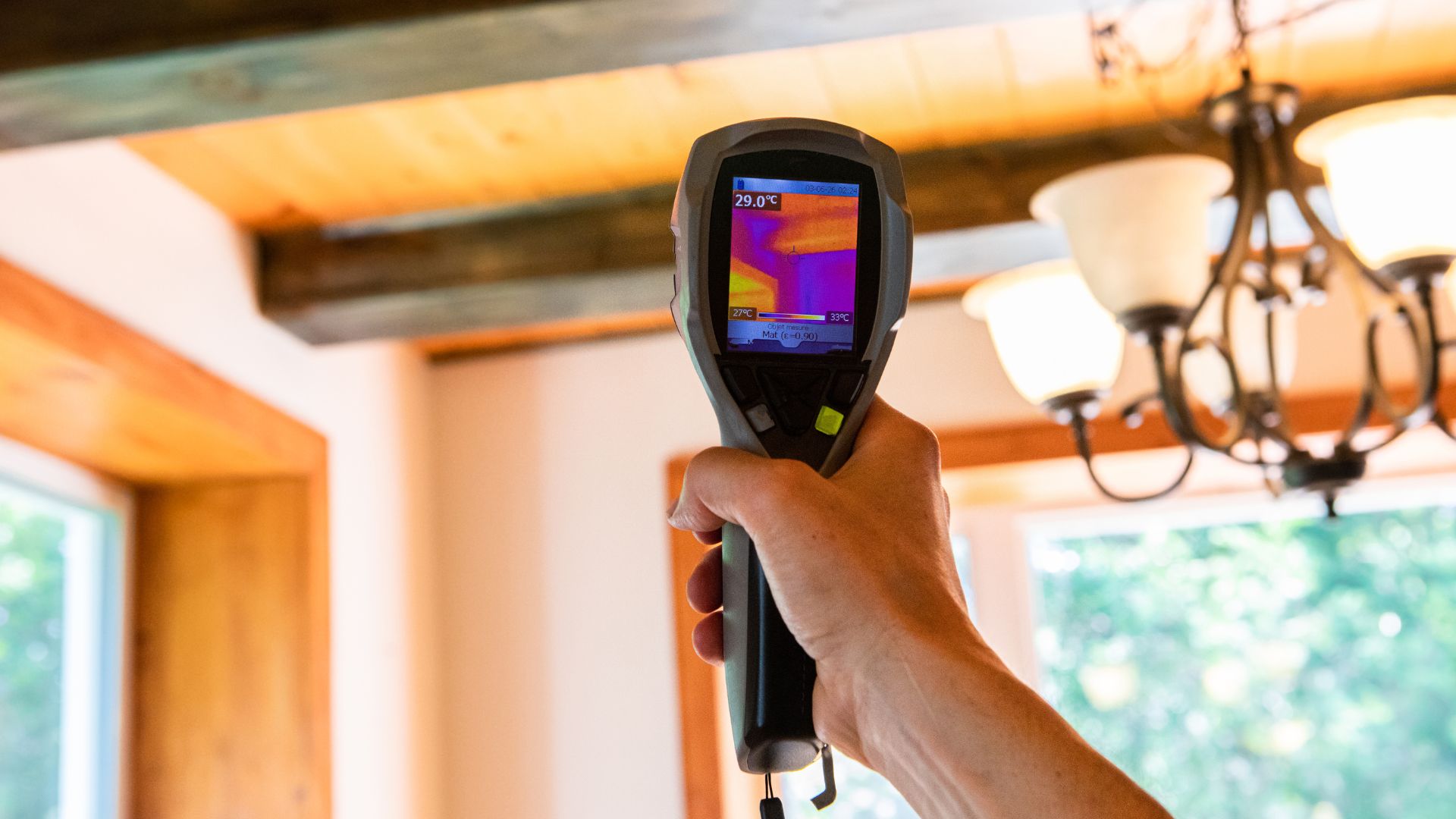Suspect Mold in your Home or Basement?
Mold and dampness anywhere in your home, especially in your basement, can be signs of structural damage, but they can also cause massive amounts of damage on their own. If your basement is frequently damp and humid or has standing water of any volume, it can quickly turn into a perfect spot for mold, mildew, and pest infestations.
Moisture issues are no joke; if they are left untreated, they can cause huge amounts of damage to your home and even your family's health. Your basement is particularly susceptible to dampness and mold because it sits below ground level. The soil around your home is packed with water, and the hydrostatic pressure that this causes can crack your walls and foundation, allowing moisture into your home.
Protect yourself and your family, and contact us today if you have any questions about a mold inspection for your property or home. We proudly serve clients in Colorado Springs and the surrounding areas.
Suspect Mold in your Home or Basement?
Mold is notoriously tenacious, but it requires certain conditions to spread. Unfortunately, the average basement provides the perfect conditions for mold growth. The required conditions for mold are:
- Darkness (mold cannot grow in UV light)
- Moisture
- Oxygen
- Organic material (e.g., wood, drywall, fabric)
- Mold spores
- Time
Most basements are dark and have organic materials like wooden joists and supporting beams. All it takes for mold to take root is one leak. Despite our best efforts, dampness has a way of getting into basements. Water always finds a way, whether it’s a plumbing flood, a small leak, a broken water heater, a failed sump pump, or more insidious issues such as seepage and a cracked foundation.
Suspect Mold in your Home or Basement?
A Humid Climate
The weather and climate can work against you when it comes to keeping your basement dry. If the air outside is humid and warm, your basement will begin to harbor moisture, too; unless, of course, you have a good dehumidifier to keep the climate in your basement stable. That can make all the difference.
Leaking Pipes or Appliances
An internal leak or failed appliance can push a huge amount of water into your basement. Even if you remove all standing water, the dampness will take a little while to leave the air. That’s the time in which mold can form.
Sump Pump Failure
If your sump pump stops working during a storm, you’re going to have bigger problems than mold to contend with, but mold is nonetheless a likely result of serious sump pump issues.
Cracks in Your Foundation
Cracks in your foundation and basement floor let water seep up from below. This is an incredibly difficult thing to fix, but a good dehumidifier or vapor barrier can make all the difference when it comes to preventing mold formation as a result of these cracks.
Damaged Window Wells
Many homeowners install windows in their basement to let in a little light or an egress window system to meet code requirements. While this can dramatically improve the atmosphere and safety, it also leaves a weak spot for dampness to get through. Window wells were designed to allow for windows slightly below ground level, but they can also hold water. If they have poor drainage, this can lead to leaks.
How Mold Can Damage Your Health
The problem with mold is that you can’t tell which kind is benign and which is particularly dangerous. There are many types of mold and not all of it is visible. In fact, many mold spores can be airborne and cause mild to sever health problems. If you have had any of the above “potential” causes of mold, or water damage, you need to get your home tested to protect you and your family.
Mold can cause:
- Congestion.
- Irritation to your eyes.
- Bloody noses.
- Sneezing.
- Coughing.
- Headaches.
- Sore throats.
- Migraines.
- Lung irritation.
- Wheezing.
- Rashes.
- Infections (if it gets into an open wound)
These are just some of the side effects experienced by healthy people. If you have conditions like asthma, cystic fibrosis, or COPD, the consequences could be dire. It pays to take no chances where mold is concerned.
Test for known mold types once you spot spores or suspect mold in your home. If it is an airborne variety, get a complete diagnosis to treat and remove it as quickly as possible.
Why Choose Professionals Over DIY Home Kits
While it may be tempting to get an over-the-counter home mold testing kit, they are oftentimes misleading, unreliable, and simply wrong. Mold is present in many home environments since it’s a natural biological process. While home testing kits may detect the presence of mold, they fail to accurately calculate its concentration and pinpoint the exact mold source. Professional mold sampling will help you deal with a mold issue effectively and decisively.

Schedule Your Mold Inspection in Colorado Springs and the Surrounding Areas
While we don't list every city we serve, we are pleased to assist clients within a 150-mile radius of Colorado Springs. A mold inspection is essential for maintaining the safety and integrity of both residential and commercial properties. Contact us today to schedule your mold inspection in Colorado, and we will respond promptly.